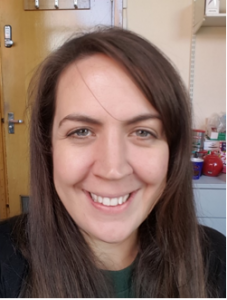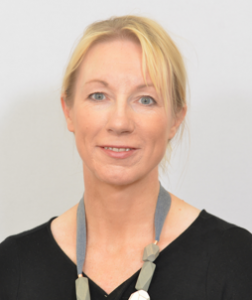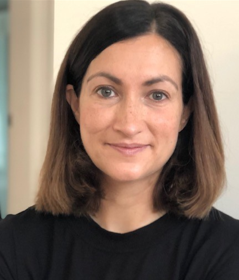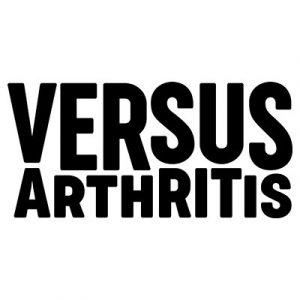
The Data Jigsaw is a research programme in Greater Manchester, which is led by the University of Manchester. The programme, which runs from March 2021 to March 2025, is bringing together patient data from different sources, collected in various ways (some for the first time) to answer important questions about muscle and joint conditions. This work will address the problems of missing health information, data in formats that are difficult to analyse, or which are stored separately, meaning that researchers can tackle new types of research questions. Data will be obtained directly from patients and professionals, from hospital and GP records and from adult social care services.
On this page:
About the project
The problem
Arthritis and other muscle and joint conditions are a leading cause of disability and have a major impact on the quality of people’s lives. Unfortunately, the amount and quality of information collected from patients living with muscle and joint conditions is sometimes limited. This makes it hard for doctors and researchers to improve understanding and treatments for muscle and joint conditions, compared to some other health conditions. This can be because information is just never recorded within the NHS (such as people’s experiences of living with disease), or because information is not recorded in a way that be accessed or analysed by researchers.
How we are trying to address this problem
In the Data Jigsaw we will join together different sources of patient data, collected in various ways, to answer important questions about muscle and joint conditions.
The project will be run in Salford, Greater Manchester where hospital and GP records are already joined up for personal care. We will be analysing information taken from hospital, GP and adult social care records including information extracted by computers from rheumatology outpatient clinic letters . To answer particular research questions, we will join some hospital data with some GP data and also join some adult social care data with either hospital or GP data. In addition, we will be collecting information directly from patients and joining it with some of their hospital data. We will also be exploring ways for healthcare staff to better record information that can both improve care as well as be used for research.
Keeping your data safe
We are committed to the highest standards of data protection, using the safest, most secure ways to allow researchers access to the data.
The information we use is directly relevant to the research we are conducting. Personal information such as name, address, and date of birth is always removed from information before the researcher can access it. The information researchers have access to is called de-identified information.
We are using this de-identified information, having received national approval to use it, in a controlled and secure environment in the hospital. If you have previously opted out of your health information being used in research, your information will not have been included in the data being analysed in the Data Jigsaw research.
If you would like to know more about how to opt-out from your health information being used in future research please see Opting out: Your data for research: your choice section below.
How the Jigsaw research will benefit patients
We will demonstrate the value of this new data by using it to answer important questions such as:
- How common is it for people to be diagnosed with a particular type of arthritis?
- Are there ways of speeding up the time it takes to be diagnosed with conditions such as axial spondyloarthritis?
- What are the benefits and possible harms of certain painkillers?
We will identify how our new ways of collecting and linking data can be followed in other parts of the country. We hope that improving data quality and access to data across England will lead to more accurate diagnosis and improve treatment of arthritis and other muscle and joint conditions. If collected in the right way and accessed safely, data will improve the management of health conditions for future generations.

Study results
Final report
The final report for the Assembling the Data Jigsaw study can be downloaded from the University of Manchester Research Explorer:
The Data Jigsaw Results Webinar: Part 1. Clinical research into MSK conditions
The research team shares key findings from the data integration pilot:
- The use of opioids to treat non-cancer pain (Meghna Jani)
- Identifying as-yet undiagnosed axial spondyloarthritis and future implementation of a predictive algorithm (John McBeth & IQVIA)
- Social care use in people living with musculoskeletal conditions (Jenny Humphries)
- Q&A session
The Data Jigsaw Results Webinar: Part 2. Data access, linkage and public trust
The research team shares key findings from the data integration pilot:
- Better public trust: Public notification campaign about data sharing for Jigsaw research (Caroline Sanders)
- Better data:
- Text-mining outpatient letters, and misclassification of disease (Will Dixon)
- Structured data collection in rheumatology outpatient services (Susie Moschogianis)
- Reflections on running a data integration pilot (Will Dixon)
- Q&A session
The Data Jigsaw explainer video
Explainer video showing how The Data Jigsaw research can have a positive impact on people’s lives.
Patient and public involvement and engagement (PPIE)
Patient and public involvement and engagement will take place throughout the programme by researchers in collaboration with and supported by a core group of experienced public contributors. The public contributors are undertaking engagement activities with diverse communities in Salford, where the research is taking place, to raise awareness of the research and involvement opportunities, and ensure a range of voices and lived-experience will be heard within the Jigsaw research.
The Data Jigsaw Advisory Group
The Data Jigsaw Advisory Group comprises expertise from the muscle and joint health community, social care and patient data. Their role is to bring advice and challenge to the research programme to help ensure it:
- Is conducted to a high standard
- Meets the needs of its stakeholders
- Is aware of other relevant work
- Shares the findings in the best ways possible
Members of the Group will guide and support the successful dissemination of the research and other outputs from the programme. See Terms of Reference for more information and a list of Group members. Download Terms of Reference for the Jigsaw Advisory Group and (PDF)

Project workstreams and work packages
Workstream 1: Clinical Research Questions
Work package 1.1: Occurrence and progression of muscle and joint conditions
We are looking at data taken from patients’ hospital records and GP records to identify patients with a muscle and joint diagnosis. Comparing diagnoses in both hospital and GP records will help us provide more accurate estimates of both how many people have muscle and joint conditions (the prevalence) and how many new cases occur each year (the annual incidence) of arthritis and muscle and joint conditions. More accurate estimates can inform the design and planning of GP and rheumatology outpatient services and staffing levels.
We are also collecting information directly from patients about how muscle and joint conditions affect their lives to “fill the gaps” in the information that is currently collected, including any support they need for day-to-day activities. The information from patients will be linked to hospital records to create a fuller picture of the impact of muscle and joint conditions on patients’ lives. This can inform local planning and government policy for social care.
Work package 1.2: Develop an algorithm to identify patients with axial Spondyloarthritis (axSpA)
Axial Spondyloarthritis (axSpA) is a form of inflammatory arthritis affecting the spine which occurs in around 1 in 200 of the UK adult population; the average age that symptoms start is 24. The UK has a long average delay of ten years between first symptoms appearing and a diagnosis being given. AxSpA significantly impacts on quality of life and ability to function, and this delay in diagnoses and treatment can result in irreversible damage. Finding ways to diagnose axSpA earlier is therefore a high priority.
Using data taken from patients’ GP records we will work with a company, IQVIA*, to develop a set of instructions (also known as an algorithm) that will predict if a patient will be diagnosed with axSpA, at the hospital rheumatology clinic, given their pattern of GP visits. As part of this work, some information from patients’ GP and hospital records will be linked to develop the algorithm and to see if the predictions are true. If the algorithm is found to work effectively, it could be used in the future to identify patients with potentially undiagnosed axSpA in GP surgeries, who could then be referred earlier to the hospital clinic where a diagnosis of axSpA could be considered by a rheumatologist.
*IQVIA is a private company experienced in working with patient healthcare data to support earlier diagnoses of disease.
Work package 1.3: Safety and effectiveness of pain relieving medications
We are looking at the use of pain relieving medication such as tramadol in people with muscle and joint conditions and other conditions (except for cancer). We will compare the characteristics of hospital patients prescribed low, medium and high dose pain relievers, and estimate how likely it is for patients leaving hospital to return to the care of their GP with treatments having started, stopped, or the dose changed. We will evaluate how common high-risk pain relieving medication prescribing is, and its potential association with hospital admission in older patients.
We will also ask some patients from Salford Royal hospital about their ongoing use of over-the-counter medications such as CBD oil. This will help to understand the benefits and harms relating to the use of different medications, which could better inform shared decision-making for doctors and patients, national prescribing guidelines and GP prescribing practices, and provide information on the benefits and harms of pain relievers for patient organisations and muscle and joint charities to share.
Workstream 2: Data Collection, Access and Processing
Work package 2.1: Generating medical information from outpatient clinic letters
Arthritis and other muscle and joint conditions in patients are not routinely recorded as a code in hospital datasets, yet they are a vital piece of the data jigsaw. Diagnoses are written as ‘free text’ in letters sent to patients following visits to the rheumatology clinic, yet these words are not easily read by a computer (machine-readable). To be able to use this information for research, it needs to be extracted from the letter. Rather than manually reading each letter, a computer can read and code the data using a technique called text-mining. It can then be linked to other datasets, for example patients’ hospital and GP records, for use in health research.
Work package 2.2: Collecting information about the Electronic Health Record
We are looking at how data is recorded in the rheumatology clinic at Salford Royal Hospital and the Manchester Royal Infirmary. We will then propose some solutions for collecting data during patient consultations in a way that helps inform the planning and delivery of the clinic and doesn’t add extra work for the doctor. We will report on what gets in the way, and what helps, this way of collecting data.
Work package 2.3: Collecting health data directly from patients
In discussion with Salford Royal patients and healthcare practitioners, we have developed an online questionnaire so that patients can share their experience of:
1. Practical help and care provided by family, friends and neighbours.
2. Use of pain relievers and over-the-counter medication, including benefits and side effects.
This information from patients will be linked to GP and hospital records to carry out the research described above in work packages 1.1 and 1.3.
The questionnaire will be sent to patients to be completed once every two weeks for six months, after which we will have discussions with the people who took part. As well as providing vital information in the Data Jigsaw, patients’ data and feedback will help us to understand people’s views of providing new data for research in this way, and how easy it is to do. This information is rarely collected in appointments, so collecting this directly from patients may help us to answer important questions about arthritis and muscle and joint conditions, which may help to provide information important for future care.
Work package 2.4: Social care data pilot
We are investigating what data is held locally about adult social care and the legal and governance process for accessing and potentially linking it to data taken from either hospital or GP patient records.. In this part of the research programme, we hope to be able to answer questions about the impact of muscle and joint conditions on people’s lives, and their use of care services.
Workstream 3: Maintaining Public Trust
Understanding and maintaining public trust
This work focuses on understanding and building public and patient trust in health data sharing for research which aims to improve diagnosis, treatment and services for people with muscle and joint conditions.
We have spoken with, and listened to the views of, people whose health information is being used. We have sought people’s views on health data sharing, including how data is kept safe, and how we might communicate more widely with patients and the public about data sharing. Working with a design agency, True North, we will develop and test ways of talking with the wider public in ways that will help build their trust in data sharing for muscle and joint research.
Sustainability and scalability
We want to make sure that the learning from collecting information from patients and linking different datasets is shared and used by other healthcare providers, and adopted by policy-makers. We will identify and work with people who can help this happen. This includes working with patient organisations, such as Versus Arthritis, to make sure that our research addresses the most important gaps about muscle and joint conditions, and therefore has the maximum impact on patients’ lives.
We will evaluate how successfully we have done this, and what difference our research has made.

Meet the team
Prof Will Dixon
 Prof Will Dixon is the Lead Investigator for the Jigsaw programme. He is a practicing consultant rheumatologist at Salford Royal Hospital, and a researcher at the University of Manchester with expertise in epidemiology and digital health. Will is also Director of the Centre for Epidemiology Versus Arthritis.
Prof Will Dixon is the Lead Investigator for the Jigsaw programme. He is a practicing consultant rheumatologist at Salford Royal Hospital, and a researcher at the University of Manchester with expertise in epidemiology and digital health. Will is also Director of the Centre for Epidemiology Versus Arthritis.
Prof John McBeth
 Prof John McBeth leads workstream 1: Clinical Research Questions and oversees the activity within each associated work package. John is Deputy Director of the Centre for Epidemiology Versus Arthritis.
Prof John McBeth leads workstream 1: Clinical Research Questions and oversees the activity within each associated work package. John is Deputy Director of the Centre for Epidemiology Versus Arthritis.
Dr Jenny Humphreys
Dr Jenny Humphreys  leads work package 1.1: understanding the occurrence and progression of arthritis and other muscle and joint conditions. Jenny is a practising consultant rheumatologist at Manchester Royal Infirmary.
leads work package 1.1: understanding the occurrence and progression of arthritis and other muscle and joint conditions. Jenny is a practising consultant rheumatologist at Manchester Royal Infirmary.
Dr Jennifer Humphreys MRCP, PhD | The University of Manchester
Dr Mark Lunt
Dr Mark Lunt  contributes to the biostatistics element of work package 1.1: understanding the occurrence and progression of arthritis and other muscle and joint conditions in Salford.
contributes to the biostatistics element of work package 1.1: understanding the occurrence and progression of arthritis and other muscle and joint conditions in Salford.
Dr Benjamin Brown
 Dr Benjamin Brown leads on the health informatics element of work package 1.2 Develop an algorithm to identify patients diagnosed with axial Spondyloarthritis (axSpA).
Dr Benjamin Brown leads on the health informatics element of work package 1.2 Develop an algorithm to identify patients diagnosed with axial Spondyloarthritis (axSpA).
Dr Benjamin Brown MRCGP, MSc, MPH, PhD, FFCI | The University of Manchester
Dr Meghna Jani
 Dr Meghna Jani leads work package 1.3, looking at the safety and effectiveness of pain relieving medication. She is also a consultant rheumatologist at Salford Royal Hospital.
Dr Meghna Jani leads work package 1.3, looking at the safety and effectiveness of pain relieving medication. She is also a consultant rheumatologist at Salford Royal Hospital.
Dr Belay Birlie Yimer
 Dr Belay Birlie Yimer
Dr Belay Birlie Yimer
Research Associate (Epidemiology) for workstream 1: Clinical Research Questions.
Belay conducts analysis of health data in work packages 1.1 and 1.3 about the occurrence and progression of arthritis and other muscle and joint conditions and the effectiveness and safety of pain relieving medication.
Prof Niels Peek
 Prof Niels Peek leads workstream 2: Data Collection, Access and Processing and oversees the activity within each associated work package. Niels is also the Director of the Christabel Pankhurst Institute for Health Technology Research and Innovation.
Prof Niels Peek leads workstream 2: Data Collection, Access and Processing and oversees the activity within each associated work package. Niels is also the Director of the Christabel Pankhurst Institute for Health Technology Research and Innovation.
Prof Goran Nenadic
 Prof Goran Nenadic leads work package 2.1: Generating medical information from rheumatology outpatient clinic letters.
Prof Goran Nenadic leads work package 2.1: Generating medical information from rheumatology outpatient clinic letters.
Dr Judith Jeyafreeda Andrew
 Dr Judith Jeyafreeda Andrew
Dr Judith Jeyafreeda Andrew
Judith supports the development of text-mining methods to extract medical information from outpatient letters to help answer clinical questions.
Warren Del-Pinto
 Warren Del-Pinto
Warren Del-Pinto
Research Associate supporting work package 2.1: Generating medical information from outpatient clinic letters.
Prof Dawn Dowding
 Prof Dawn Dowding leads work package 2.2: Collecting information about the Electronic Health Record.
Prof Dawn Dowding leads work package 2.2: Collecting information about the Electronic Health Record.
Prof Professor in Clinical Decision Making Dawn Dowding | The University of Manchester
Dr Sabine van der Veer
 Dr Sabine van der Veer leads work package 2.3: Collecting health data directly from patients.
Dr Sabine van der Veer leads work package 2.3: Collecting health data directly from patients.
Dr Susan Moschogianis

Susie is a qualitative researcher reviewing evidence on what makes Electronic Health Record systems easy or difficult to use (work package 2.2), and is collecting data directly from patients about any help provided by family or friends and use of pain-relieving medications (work package 2.3).
Dr Paul Clarkson
 Dr Paul Clarkson leads work package 2.4: Social care data pilot.
Dr Paul Clarkson leads work package 2.4: Social care data pilot.
Dr Paul Clarkson PhD, MSc, BA (Hons), CQSW | The University of Manchester
Prof Caroline Sanders
 Prof Caroline Sanders leads workstream 3: Public Trust – understanding and building public and patient trust in health data sharing and oversees the activity within each associated work package.
Prof Caroline Sanders leads workstream 3: Public Trust – understanding and building public and patient trust in health data sharing and oversees the activity within each associated work package.
Prof Caroline Sanders RGN/RSCN, BA hons, MSc, PhD | The University of Manchester
Prof Søren Holm
 Prof Søren Holm leads on the law, ethics and governance element of work package 3.1: Public Trust.
Prof Søren Holm leads on the law, ethics and governance element of work package 3.1: Public Trust.
Dr Zainab Yusuf
 Dr Zainab Yusuf
Dr Zainab Yusuf
Zainab is a qualitative researcher supporting work package 3.1 to build and maintain public trust. Zainab works with patient and public contributors to obtain input and feedback from diverse groups and communities throughout the research.
Dr Charlotte Sharp
 Dr Charlotte Sharp leads work package 3.2: Sustainability and scalability, which aims to help the Data Jigsaw programme ensure that the research questions and methodology are as relevant to its end users as possible, to try to scale up and sustain the outcomes, and to try to capture the impact of this work across the whole programme. Charlotte is also a consultant rheumatologist at the Manchester Royal Infirmary.
Dr Charlotte Sharp leads work package 3.2: Sustainability and scalability, which aims to help the Data Jigsaw programme ensure that the research questions and methodology are as relevant to its end users as possible, to try to scale up and sustain the outcomes, and to try to capture the impact of this work across the whole programme. Charlotte is also a consultant rheumatologist at the Manchester Royal Infirmary.
Dr Elaine Mackey
 Dr Elaine Mackey
Dr Elaine Mackey
Elaine is a Research Information Governance Manager and provides information governance support and advice across the Data Jigsaw programme and the Centre for Epidemiology.
Dr Ramiro Bravo
 Dr Ramiro Bravo is Digital Health Data Manager at The University of Manchester.
Dr Ramiro Bravo is Digital Health Data Manager at The University of Manchester.
Rachel Heron
Rachel Heron 
Research Information Governance Officers and provides information governance support and advice across the Jigsaw programme and the Centre for Epidemiology.
Lucy Njoki Njuki
 Lucy Njoki Njuki is a research assistant in a data science capacity at The University of Manchester working on data wrangling of GP and hospital health data for the study of health outcomes of patients with arthritis.
Lucy Njoki Njuki is a research assistant in a data science capacity at The University of Manchester working on data wrangling of GP and hospital health data for the study of health outcomes of patients with arthritis.
Dr Darryl Bourke
 Dr Darryl Bourkeis a research assistant in a data science capacity at The University of Manchester working on data wrangling of GP and hospital health data for the study of health outcomes of patients with arthritis.
Dr Darryl Bourkeis a research assistant in a data science capacity at The University of Manchester working on data wrangling of GP and hospital health data for the study of health outcomes of patients with arthritis.
Ginny Mitchell
 Ginny Mitchell is the Research Project Administrator for the Data Jigsaw programme.
Ginny Mitchell is the Research Project Administrator for the Data Jigsaw programme.
Public contributors
Joyce Fox
 Joyce Fox
Joyce Fox
Patient and Public Involvement and Engagement lead for the Data Jigsaw and the Centre for Epidemiology Versus Arthritis with over 8 years of experience in patient and public involvement roles.
Jane Taylor
Jane Taylor is a Public contributor and supports work package 2.3: Collecting data directly from patients.
Owen Power
 Owen Power is a Public contributor and supports work package 3.1: Building and maintaining public trust.
Owen Power is a Public contributor and supports work package 3.1: Building and maintaining public trust.
Jennifer-Anne Smith

Jennifer-Anne Smith is a Public contributor and supports work package 3.1: Building and maintaining public trust.
Jennifer-Anne Smith has various conditions and disabilities, including early onset arthritis, M.E and Fibromyalgia. She is CEO of a local charity in Salford and a regular volunteer for various organisations covering a range of local groups.
Russ Cowper
 Russ Cowper is a Public contributor and supports work package 3.1: Building and maintaining public trust.
Russ Cowper is a Public contributor and supports work package 3.1: Building and maintaining public trust.
Russ Cowper has Psoriatic Arthritis and does advocacy work with various organisations such as the Psoriasis Association, Britpact and Innovation Health Manchester.
Katarzyna (Katie) Przybylska
Katarzyna (Katie) Przybylska is a Public contributor and supports work package 3.1: Building and maintaining public trust.
Jav Rehman
 Jav Rehman is a Public contributor and supports work package 3.1: Building and maintaining public trust.
Jav Rehman is a Public contributor and supports work package 3.1: Building and maintaining public trust.
Jav is extremely passionate about equality. Using his lived experience he aims to amplify the voice of users across platforms including: the NHS, councils, charities, universities, professional associations and other public services to ensure equality is embedded across services.
Partners
Northern Care Alliance NHS Foundation Trust (NCAFT)
 Northern Care Alliance NHS Foundation Trust (NCAFT) is one of the largest NHS organisations in the country and was established to provide safe, reliable and high quality care. They provide hospital, community and social care services to around 1 million people in Bury, Oldham, Rochdale and Salford, and for wider populations in Greater Manchester and beyond. They are supporting the Data Jigsaw team by facilitating access to clinical datasets via their secure data environment and supporting the recruitment of study participants.
Northern Care Alliance NHS Foundation Trust (NCAFT) is one of the largest NHS organisations in the country and was established to provide safe, reliable and high quality care. They provide hospital, community and social care services to around 1 million people in Bury, Oldham, Rochdale and Salford, and for wider populations in Greater Manchester and beyond. They are supporting the Data Jigsaw team by facilitating access to clinical datasets via their secure data environment and supporting the recruitment of study participants.
Website: www.ncaresearch.org.uk/
Twitter: @NCAResearchNHS
IQVIA
 IQVIA are a global company working with data to deliver clinical research and health technology. They are working with the Data Jigsaw programme to develop an algorithm to identify patients with as-yet undiagnosed AxSpA.
IQVIA are a global company working with data to deliver clinical research and health technology. They are working with the Data Jigsaw programme to develop an algorithm to identify patients with as-yet undiagnosed AxSpA.
Website: www.iqvia.com

Opting out: Your data for research: your choice
We are committed to the highest standards of data protection, using the safest, most secure ways to allow researchers access to data.
Research can be conducted using health data from patient records without consent only if:
- Not seeking consent is justifiable, and
- The data provided to the researcher does not allow for individuals to be identified, and
- Where there is a clear public benefit for doing that research, and
- The purpose of the research is clearly defined, and
- There is permission from the organisation that holds the data and a written agreement is used which stipulate how the data will be managed, how long it can be accessed and when and how access is withdrawn, and
- There is appropriate approvals in place from the Health Research Authority and NHS Research Ethics Committee, and
- The community to which the data relates are appropriately informed this will include the Privacy Notice of the organisation holding the data and may also include study specific notifications provided to sites, such as Trusts and or GP surgeries or provide on a website as well as dedicated study workshops.
In our research we have followed all these principles to access extracts of data to answer our research questions. We have also conducted workshops to ask the Salford community if they support the use of the data to answer our research questions. We have placed notifications in key areas to tell people about the research and the data being used. It also tells people how to opt out of their data being used in research.
In addition, the National Opt-out is applied when generating research data from routinely collected NHS data. The National Opt-out allows anyone to ask that their data not be included in research. For more information on this please see NHS website on opting out for sharing data.
Contact us
Get in touch
If you have any questions about the Data Jigsaw project, please contact us at jigsaw@manchester.ac.uk.


